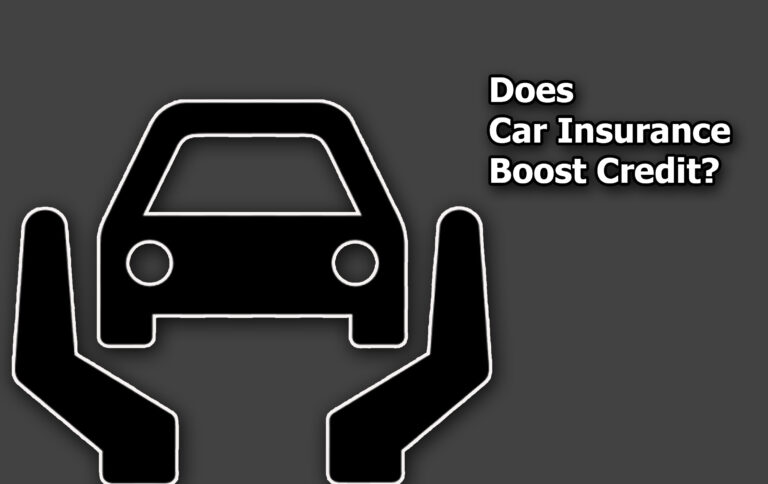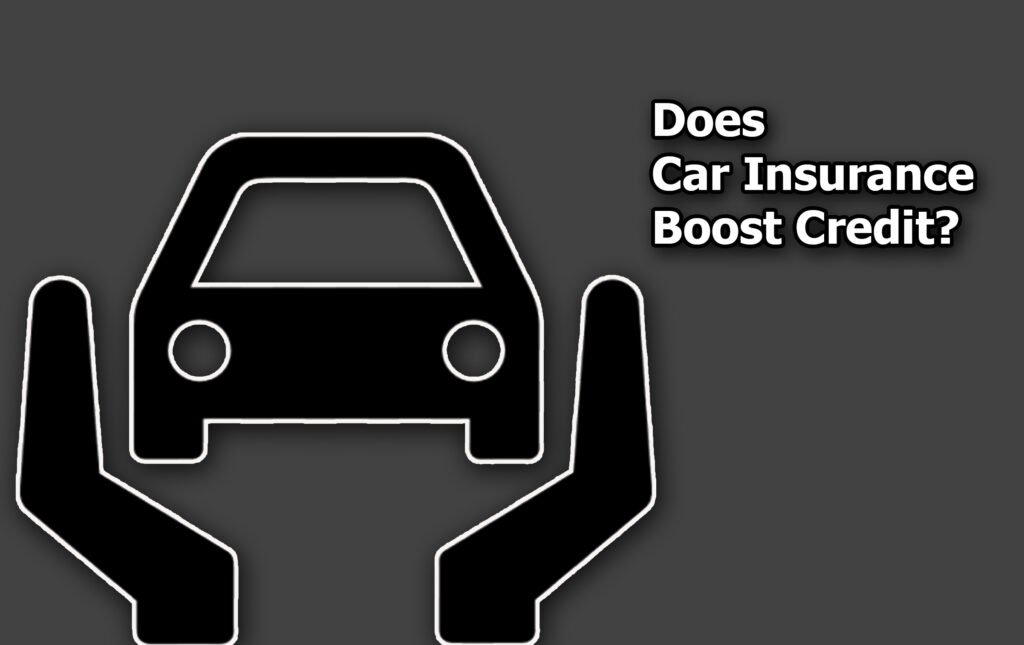
Does car insurance boost credit? In recent times, a lot of people are becoming more conscious of their credit scores, especially as they learn how these numbers affect their ability to rent apartments, get loans, or qualify for low-interest rates on financial products.

One common question among consumers is whether paying for everyday services like car insurance has an impact on credit scores. Given that car insurance is a monthly financial commitment, it’s a natural action to wonder if being consistent with payments will help boost your credit profile.
However, while the concept seems logical, the reality of how credit reporting works is more complex. Car insurance is typically categorized differently from loans, credit cards, or utilities in the eyes of credit bureaus. .
How Credit Scores Work in Relation to Car Insurance
Now, credit scores are calculated based on a variety of factors such as payment history, length of credit history, credit utilization, types of credit, and new credit inquiries.
Most of these are connected directly to how you handle borrowed money, like credit cards, mortgages, or personal loans.
On the other hand, car insurance is not a form of credit. It is simply a service you pay for in advance or in monthly installments. Unlike credit products where you borrow now and pay later, car insurance companies don’t lend you money.
So, your timely insurance payments are typically not reported to credit bureaus. And therefore do not directly improve your credit score.
Here are some important key points you must understand:
- Insurance payments are not credit payments: When you pay your premium, it isn’t counted in your credit history unless it’s financed through a credit line.
- Some insurers perform a credit check: When you apply for a policy, an insurer might do a soft or hard credit inquiry, which can affect your credit eventually, depending on the type.
- Only unpaid or defaulted insurance bills may be reported: If your account goes to collections due to non-payment, it could negatively impact your credit.
When Car Insurance Might Indirectly Affect Your Credit
Although car insurance doesn’t directly boost your credit score, there are some indirect ways your insurance activity can influence your credit standing. These effects typically occur under specific circumstances and usually involve missed payments or third-party financing.
Here are situations where car insurance can impact your credit:
- If you stop paying your insurance premium, the insurer may hand the unpaid balance over to a collection agency. Eventually, this could mean that your credit report has a derogatory mark later on.
- If you pay your insurance using a credit card and manage that card responsibly, it can help build your credit indirectly.
- Some people choose to finance their yearly or semi-annual car insurance premiums through financing companies. In such cases, you’re essentially taking a loan to cover your premium, and this loan can affect your credit either positively or negatively.
- Some insurance companies run a hard credit inquiry when you apply for coverage, which may slightly lower your credit score temporarily. However, this is rare and usually disclosed before it’s done.
How Credit Scores Can Affect Your Car Insurance Premium
While paying for car insurance usually won’t boost your credit. Your credit score can significantly affect the price you pay for car insurance. Here’s how credit scores affect insurance rates:
- Risk Assessment: Insurers make use of credit-based insurance scores to assess your risk level. A lower credit score can signal higher risk, which can lead to higher premiums.
- Discount Eligibility: Customers with good credit may be eligible for lower insurance premiums, discounts, or better policy terms.
- State Regulations Matter: Some U.S. states restrict or ban the use of credit information for setting insurance rates. For instance, California, Hawaii, and Massachusetts do not allow insurers to use credit scores to determine auto insurance premiums.
Tips to Maintain Good Credit While Managing Insurance
While car insurance won’t build your credit on its own, there are smart strategies you can use to stay financially healthy and ensure your insurance doesn’t negatively impact your credit. These useful tips include:
- Avoid lapses that can lead to collections.
- Paying premiums with a credit card and repaying the balance quickly can yield points and build credit.
- Regularly check your credit reports for errors or unauthorized activity.
- If you must finance your premium, make sure you understand the terms and repay responsibly.
Frequently Asked Questions
Does Car Insurance Show Up On My Credit Report?
No, it doesn’t. Your car insurance payments generally do not appear on your credit report unless you’ve financed the policy through a lender or the account goes to collections.
Will Missing A Car Insurance Payment Hurt My Credit Score?
Yes, if the missed payment is sent to collections, it can negatively affect your credit score. Otherwise, insurers don’t typically report on-time payments.
Can I Get Car Insurance With Bad Credit?
Yes, but you are more likely to pay higher premiums. Some companies offer policies specifically for those with lower credit scores.